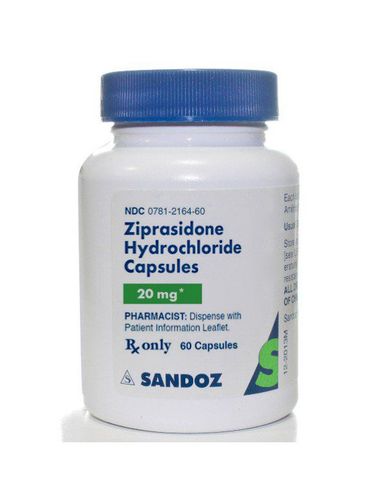This is an automatically translated article.
About 1 in 7 new women will have postpartum depression and it can start any time during the first year after you give birth. In that case, you can still seek help with your mental health needs and continue to breastfeed.
1. How does postpartum depression affect children?
It's normal to have "baby blues" after giving birth, but if it persists after a few weeks, you may be experiencing postpartum depression. This state will interfere with the bonding between you and your baby. Besides, it is also the cause of making breastfeeding more difficult.
There is no denying that a mother's mental health is very important not only for the woman herself but also for the child. However, with postpartum depression, the mother may not be able to provide the nourishment she needs for the baby to grow. The mother will rarely hold and interact with the baby and puts the baby at risk for a number of negative health outcomes, such as failure to thrive, slow growth, trouble sleeping, problems with behavior and emotions and learning.
Note that sometimes these symptoms take years to appear. In addition, many studies also show that mothers with postpartum depression often neglect to follow the schedule of health care visits and take fewer safety measures for their babies.

Người mẹ bị trầm cảm sau sinh có thể ít khi ôm ấp và tương tác với đứa trẻ và khiến đứa bé có nguy cơ mắc một số kết quả tiêu cực về sức khỏe
2. Screening for postpartum depression
Although pediatricians are trained to care for children's health, they can also care for children's parents if needed. Most women usually only have 1-2 postpartum visits with their obstetricians and are not always able to get screened for depression. Whereas pediatricians can see babies up to 6 times in the first 6 months of life, they are the best people to identify mothers with postpartum depression. It is for this reason that the American Academy of Pediatrics recommends that pediatricians perform postpartum depression screening for new mothers when they visit their babies during the 1st, 2nd, and 4th months of life. and 6 months. The screening tool most pediatricians use is the Edinburgh Postnatal Depression Scale (EPDS). This was a 10-item questionnaire that mothers filled out on their own.
3. Maintain breastfeeding goals
If a mother is experiencing postpartum depression, the doctor will ask her what brings her joy and peace and what makes the symptoms worse. In the process, breastfeeding is also considered. The American Academy of Pediatrics recommends exclusive breastfeeding for about 6 months and continued breastfeeding for 1 year or longer as desired by both mother and baby.
If breastfeeding can help a mother bond with her baby better and can contribute to the improvement of her child's symptoms, treatments for postpartum depression should be built around preserving Protecting the relationship between mother and child through breastfeeding behavior. If breastfeeding is contributing to a mother's symptoms of postpartum depression, she shouldn't feel guilty about choosing to breastfeed instead.

Nuôi con bằng sữa mẹ sẽ giúp bạn gắn kết với con mình hơn
4. How to breastfeed when having postpartum depression?
When it comes to breastfeeding, almost all new moms go through a learning curve and feel a bit frustrated at first. However, postpartum depression increases this sense of frustration even when you're on the right track. If you are having difficulty with the day's activities, are not getting enough sleep, or are not eating well, seek medical help. Your doctor can assess you for depression and refer you to a specialist if necessary. Your doctor may prescribe an antidepressant that is safe while breastfeeding. What you need to remember is that you are not alone. Depression is a treatable condition and it's not difficult to find support. With the right support, breastfeeding can be a source of joy and comfort for both you and your baby. Share with your husband how you feel and you can make friends, especially moms like you. Try to make yourself as comfortable as possible, including crying when you want to. Eating right and exercising also help in this situation. If you eat less, you can eat a few more snacks. Avoid caffeine and sugar as they can worsen the symptoms you are experiencing. Physical activity can also improve your mood. Spend time with family and friends, shower and change clothes every day, accept offers of help, and get out of the house, even if you're just going for a short walk with your child.

Không nên ăn các đồ ăn chứa caffeine và đường có thể làm trầm trọng thêm các triệu chứng bệnh
5. Antidepressants & Breastfeeding
Treatment of postpartum depression often requires a combination of antidepressants and talk therapy. Supportive activities such as support groups and sleep improvement are also important aspects of therapy. Many medications for mood disorders and postpartum anxiety are safe to use while breastfeeding.
All children deserve a healthy mother and all mothers deserve the chance to enjoy their and their children's lives. If you're feeling depressed during pregnancy or after giving birth, don't suffer alone. Tell your loved ones and contact the doctors for timely support.
Newborns in general are prone to respiratory diseases, respiratory infections and gastrointestinal infections if they are introduced to solid foods early or the storage and preparation of milk is not guaranteed. To protect children's health, parents should do well to exclusively breastfeed their babies for the first 6 months (if possible) and vaccinate on schedule. As soon as the child shows symptoms such as anorexia, fatigue, crying, it is necessary to take the child to the hospital to be consulted by a specialist for monitoring and treatment. The pediatric department at Vinmec International General Hospital is the address for receiving and examining diseases that infants and young children are susceptible to: viral fever, bacterial fever, otitis media, pneumonia in children. With a system of facilities, modern medical equipment, sterile space, minimizing the impact as well as the risk of disease spread, Vinmec will bring satisfaction to customers. and is highly regarded by industry experts with:

Sử dụng thuốc chống trầm cảm và liệu pháp trò chuyện giúp điều trị trầm cảm sau sinh
Gathering a team of leading doctors and doctors in Pediatrics: Including leading experts, highly qualified (professors, associate professors, doctoral, masters), experienced, have worked at the hospital. big hospitals like Bach Mai, 108.. The doctors are all well-trained, professional, have a heart - reach, understand young psychology. In addition to domestic pediatric specialists, the Department of Pediatrics also has the participation of foreign experts (Japan, Singapore, Australia, USA) who are always pioneers in applying the latest and most effective treatment regimens. . Comprehensive services: In the field of Pediatrics, Vinmec provides a series of continuous medical examination and treatment services from Newborn to Pediatric and Vaccine,... according to international standards to help parents take care of their baby's health from birth to childhood. Advanced techniques: Vinmec has successfully deployed many specialized techniques to make the treatment of difficult diseases in Pediatrics more effective: neurosurgery - skull surgery, stem cell transplantation blood in cancer treatment. Professional care: In addition to understanding children's psychology, Vinmec also pays special attention to the children's play space, helping them to play comfortably and get used to the hospital's environment, cooperate in treatment, improve the efficiency of medical treatment.
Please dial HOTLINE for more information or register for an appointment HERE. Download MyVinmec app to make appointments faster and to manage your bookings easily.
References: babycenter.com, healthychildren.org













